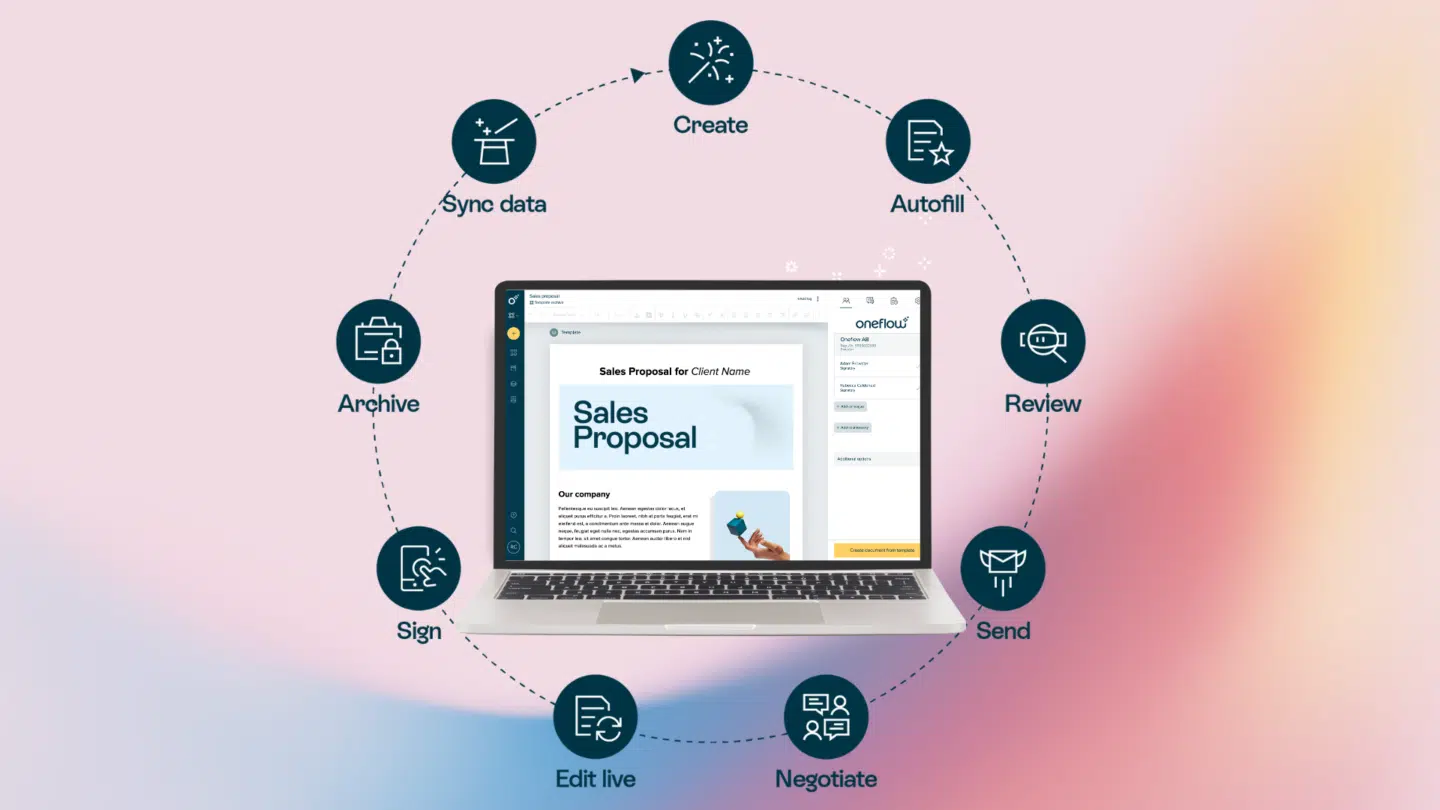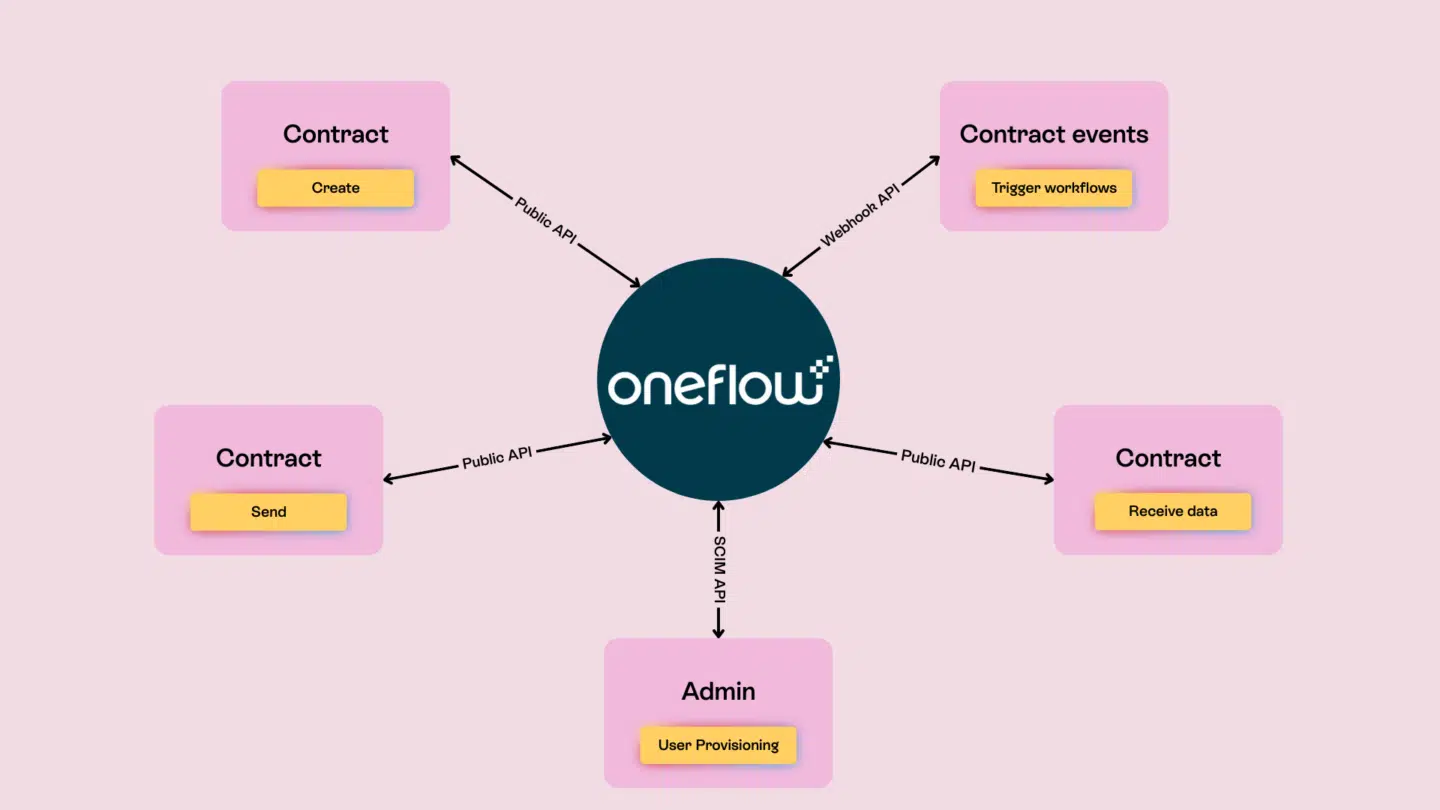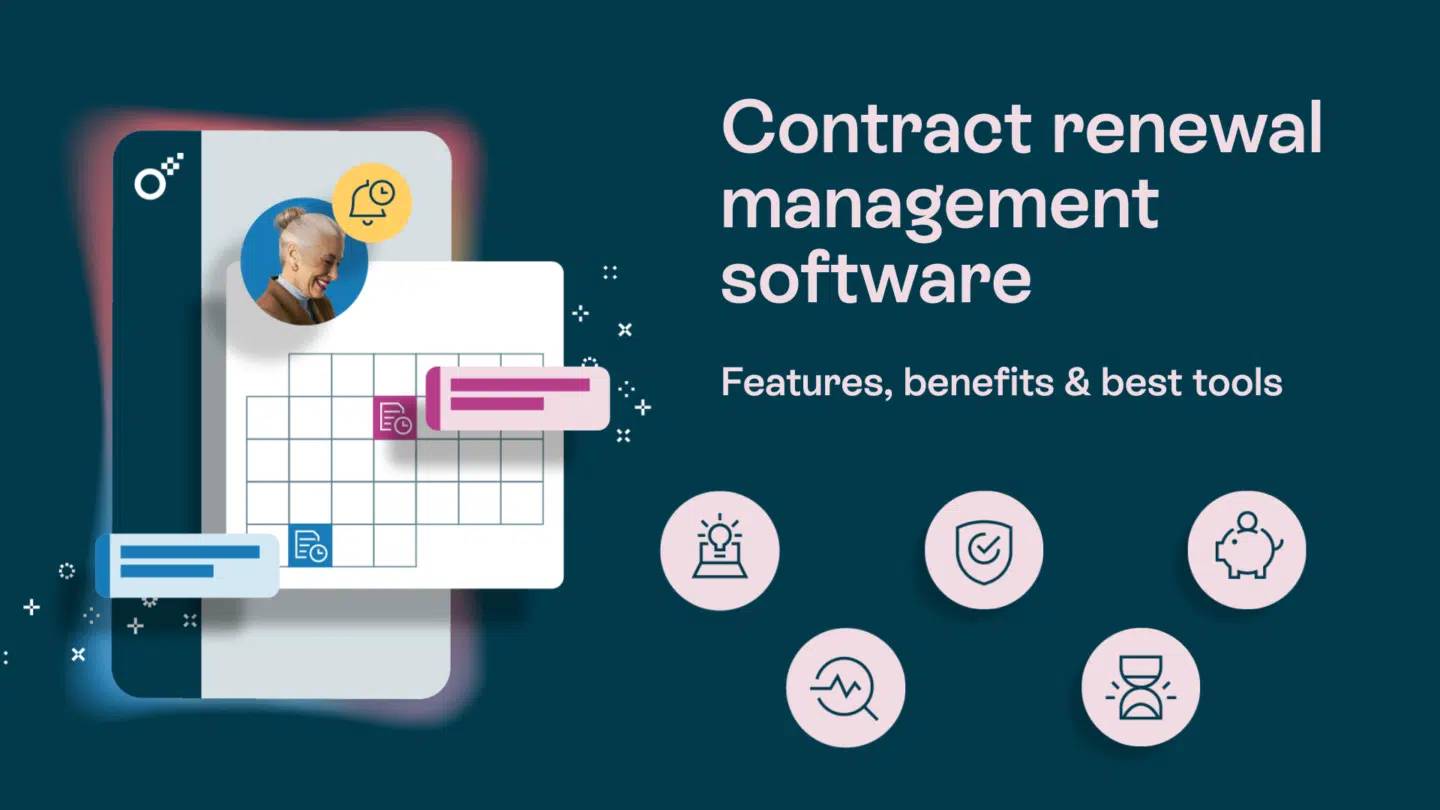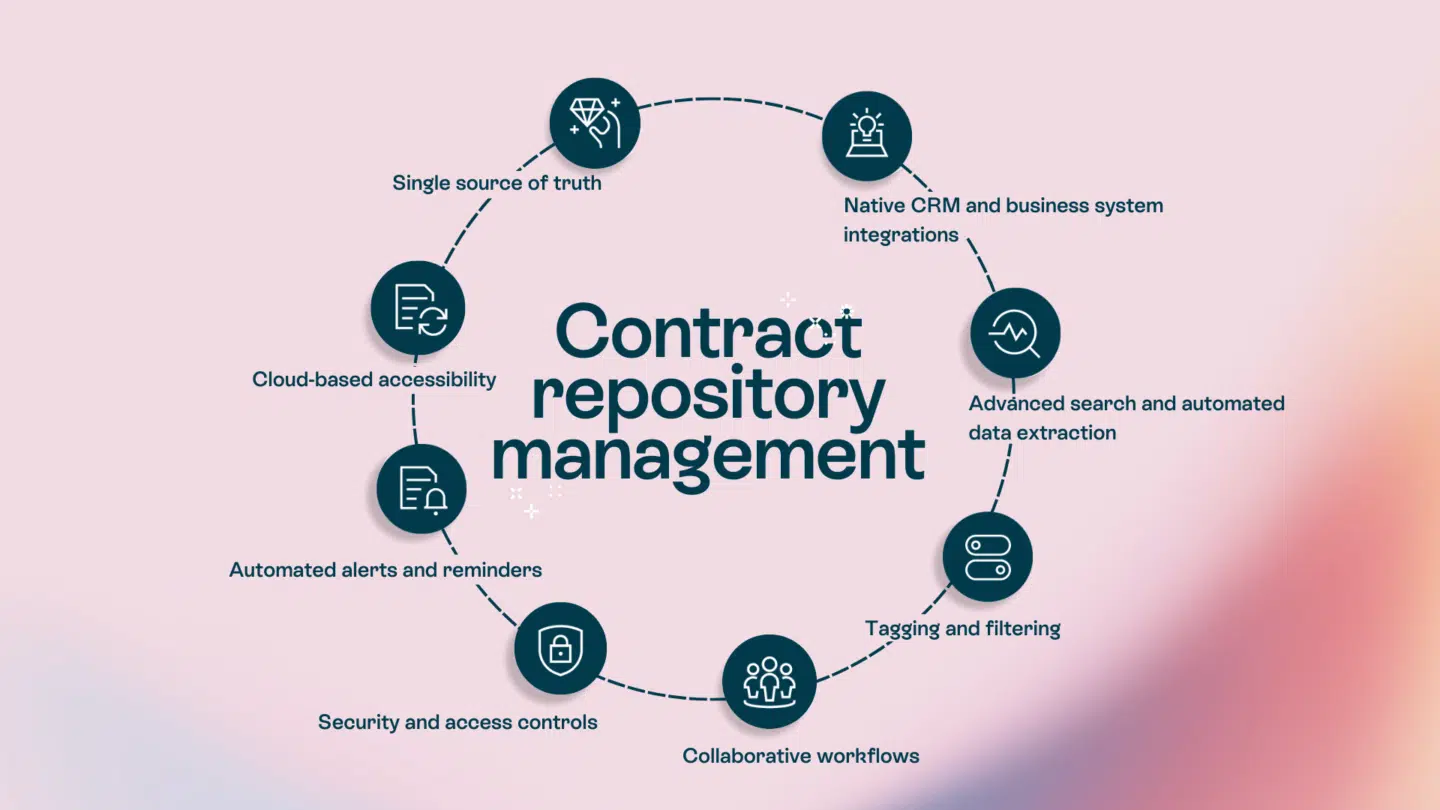Sales teams are under constant pressure to close deals swiftly and efficiently. However, the use of disparate systems to prospect, follow up, create, sign and manage deals and contracts can lead to a slow process, longer sales cycles and hindered faster agreement due to a lack of a unified system.
By integrating contracts into their CRM systems, sales leaders can transform these challenges into opportunities for enhanced efficiency and growth.

The costs of unintegrated systems
Relying on multiple, unintegrated tools to manage the sales process from prospecting, negotiating, and signing contracts can have several adverse effects:
- Long sales cycles: When departments such as sales, legal, and finance operate on different platforms, it creates silos, leading to miscommunication and delays in contract approvals. A unified system fosters seamless collaboration, ensuring all teams are aligned.
- Increased operational costs: Maintaining various systems often results in higher licensing fees, redundant functionalities, and additional training expenses. A centralized contract management system can streamline processes and reduce these costs.
- Slow agreements due to lack of a unified system: Fragmented data across various tools hampers real-time visibility into contract statuses, making it challenging for sales leaders to make informed decisions promptly. Enhanced visibility into contract workflows enables proactive management and strategic planning.
The strategic role of sales leaders in organizational success
Sales leaders are uniquely positioned to drive organizational success by:
- Establishing a unified contract management system: By consolidating contract data into a single, integrated platform, sales leaders can reduce redundancies and operational expenses, allowing resources to be allocated more effectively toward revenue-generating activities.
- Enhancing cross-functional collaboration: A centralized system fosters seamless communication among departments, ensuring all teams are aligned and working towards common objectives.
- Facilitating data-driven decision-making: Centralized contract data provides sales leaders with actionable insights, enabling informed decisions that drive business performance.
How different sales roles benefit from contract automation
Each sales role within an organization faces unique challenges when it comes to contracts, and automation provides specific advantages:
- Sales representatives benefit from faster contract creation and approvals, allowing them to close deals quicker and reduce back-and-forth negotiations.
- Account executives gain better visibility into contract statuses, ensuring they never lose track of pending approvals or deal progress.
- Sales managers can monitor pipeline efficiency with real-time contract analytics, helping them forecast sales performance more accurately.
- RevOps teams achieve better data consistency by ensuring contracts, CRM records, and reporting tools are always in sync, reducing errors and improving sales efficiency.
By automating the contract process, every sales role can focus on their core objectives—building relationships, closing deals, and driving revenue—without being bogged down by administrative bottlenecks.
Read also: 10 best contract lifecycle management software solutions in 2026
Transforming contract management into a strategic asset
To address the challenges posed by disparate tools, sales leaders should consider the following steps:
- Assess current systems: Conduct a comprehensive evaluation of existing contract management tools to identify redundancies and inefficiencies.
- Implement integrated solutions: Adopt a unified contract lifecycle management (CLM) platform that centralizes all contract-related activities, facilitating seamless collaboration across departments. This integration ensures that all stakeholders have access to the same information, reducing errors and delays.
- Automate routine processes: Leverage automation to handle repetitive tasks such as contract generation, approvals, and renewals, thereby reducing manual errors and freeing up valuable time. Automation streamlines workflows, allowing teams to focus on strategic activities.
- Enhance data visibility: Ensure that the CLM system provides real-time analytics and reporting capabilities, enabling sales leaders to monitor contract performance and make data-driven decisions. Improved visibility into contract data allows for proactive management and swift response to emerging issues.
- Promote cross-functional training: Encourage training programs that familiarize all relevant teams with the integrated CLM system, fostering a culture of collaboration and shared responsibility. Cross-functional training ensures that all departments are aligned and can effectively utilize the new system.
Final thoughts
By integrating contracts into existing CRM systems such as Salesforce, HubSpot or Microsoft Dynamics, sales leaders can significantly reduce sales cycles, enhance operational efficiency, and accelerate agreements. This strategic approach not only streamlines internal processes but also strengthens the organization’s overall effectiveness, positioning the company for sustained success in a competitive marketplace.
For more insights on optimizing contract management within sales, please visit: https://oneflow.com/solutions/sales/.








